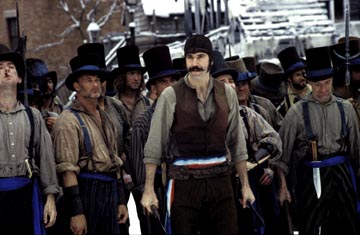 Who thought that Wes Anderson, who's still early on in a career of mastering the human frontier, could suddenly switch to the world of animated animals so perfectly? "Fantastic Mr. Fox," for lack of a better word, is fantastic.
Who thought that Wes Anderson, who's still early on in a career of mastering the human frontier, could suddenly switch to the world of animated animals so perfectly? "Fantastic Mr. Fox," for lack of a better word, is fantastic. "Fantastic Mr. Fox" is based off the book by the wildly imaginative Roald Dahl. Dahl's source material often makes for classic cinema (mainly, the original "Willy Wonka & the Chocolate Factory"). The imaginative mind of Dahl is in good hands with the equally imaginative mind of Anderson.
For those not familiar with the book, the titular Mr. Fox (George Clooney) was a former chicken thief who retired his old profession after marrying Mrs. Fox (Meryl Streep) and having their child, Ash (Jason Schwartzman).
After going through what could be described as a mid-life crisis, Mr. Fox gets back into his old stealing habits and incites the wrath of the three wicked farmers Bogus, Bunce, and Bean. After they threaten his home and family, Mr. Fox prepares to fight back.
As pointed out, "Fantastic Mr. Fox" comes from the brilliant mind of Wes Anderson. Anderson is well known for directing films such as "Rushmore," "The Royal Tenenbaums," and "The Life Aquatic." For a film that follows around the lives of foxes, rats, and badgers, it is still completely Andersonesque. He accounts for every tiny detail. The cozy tree the foxes inhabit is alive with color, their furniture and their walls adorned with the most intricate decorations. You might also marvel at how a computer in the background is covered with post it notes, or how the walls of the deepest parts of the earth have fossils imprinted into them.
Anderson also leaves his mark with the music, which is a mixture of original score and rock music. What other director would use a Rolling Stones song in a family movie? The original score often perfectly matches the pleasant, agrarian landscape and during more suspenseful moments, takes on a spaghetti western feel.
The characters themselves also feel ripped out of previous Anderson films. Mr. Fox's mischievous behavior over family values can feel something like those of Royal Tenenbaum, and his struggle to find a real identity for himself can at times, make him seem like Max Fisher.
What's most important about Anderson's direction is that every frame seems filled with absolute love. Rather than record the voices and sound in a studio, Anderson instead decided to record out in a farm in Connecticut. This no doubt gives the film a much more natural feeling, rather than just feeling like another artificial studio product churned out in too short an amount of time.
Perhaps that's what makes this better than the typical, how real it feels; even the animals feel human. Also, the film manages to be so adult in both theme and humor despite being a children's film. The fact that the word "existentialism" is mentioned in it might give you an indication of it.
In this light, Anderson's adaptation of "Fantastic Mr. Fox" manages to turn this fairytale into an allegory of the human existence. At one point, Mr. Fox realizes that his days as a thief proved him to be a wild beast, and that he must settle down. The fact that he goes back to his old ways shows the wild, untamed beast that is the basis of our existence. Here, is the key to existentialism.
But I don't want to get into philosophy. After all, this is meant to be a fun story for the family, and at that it succeeds admirably.
For some reason, as I watched this film, I couldn't stop thinking of the other children's film made by a mature filmmaker this year: "Where the Wild Things Are." Both were experiments of whether their directors could reach to new audiences. "Fantastic Mr. Fox" wins in this experiment not just because its well filmed, not just because it has depth, but for one small reason alone: it's an amazingly fun time at the movies.





